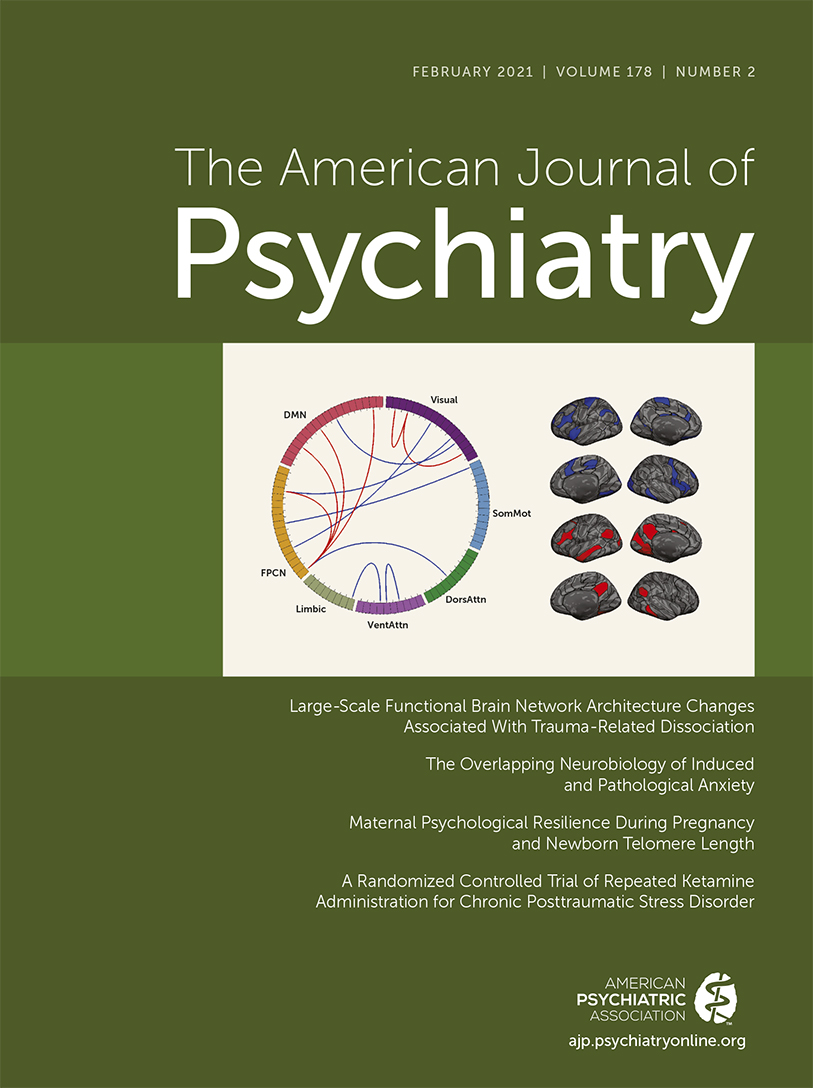Comment on “Do Benzodiazepines Cause Alzheimer’s Disease?”
To the Editor: We write in response to Dr. Salzman’s editorial (1), published in the June 2020 issue of the Journal, on the recent Journal study that found no association between benzodiazepines and incident dementia in patients with affective disorders (2). Given the widespread nature of benzodiazepine prescribing, particularly in mid and late life (3), these findings may be reassuring for both prescribers and patients.
We were surprised to read this in the editorial: “[M]ild cognitive impairment may also be treated with low-dose benzodiazepines to improve daytime calming (as well as sleep onset), and this use may be welcomed.” We are concerned that some colleagues may interpret this as a recommendation to treat their older patients with memory concerns with a benzodiazepine, a proposition supported by no high-quality evidence. In fact, in the reference cited to support this suggestion—an article for which Dr. Salzman is first author—the Results section says: “Subjects who discontinued benzodiazepines, as compared with non-discontinuing controls, showed a significant improvement in total memory, immediate recall, and total digits…. [T]hese patients appeared more alert and less forgetful; the improvement in cognitive function was noticeable to nursing staff and family members” (4). It is puzzling that Dr. Salzman suggests using benzodiazepines to treat mild cognitive impairment when his own work demonstrates the benefit of their discontinuation.
Apart from cognition, a myriad of other harms associated with benzodiazepine use in older adults go completely unmentioned, such as fall-related injury (5) and motor vehicle crashes (6). Benzodiazepines also contribute to the ongoing opioid overdose epidemic (7), during which older adults have experienced the largest relative increases in mortality (8). Acknowledging these other risks is critical when considering the editorial’s assertion of benefit from “judicious” use of low-dose benzodiazepines in older adults. Although benzodiazepines undoubtedly have a therapeutic role for select older adults, there remains ample reason for ongoing public health concern about benzodiazepine prescribing among older adults.
1 : Do benzodiazepines cause Alzheimer’s disease? (editorial). Am J Psychiatry 2020; 177:476–478Link, Google Scholar
2 : Associations of benzodiazepines, Z-drugs, and other anxiolytics with subsequent dementia in patients with affective disorders: a nationwide cohort and nested case-control study. Am J Psychiatry 2020; 177:497–505Link, Google Scholar
3 : Benzodiazepine use and misuse among adults in the United States. Psychiatr Serv 2019; 70:97–106Link, Google Scholar
4 : Cognitive improvement following benzodiazepine discontinuation in elderly nursing home residents. Int J Geriatr Psychiatry 1992; 7:89–93Crossref, Google Scholar
5 : Meta-analysis of the impact of 9 medication classes on falls in elderly persons. Arch Intern Med 2009; 169:1952–1960Crossref, Medline, Google Scholar
6 : Benzodiazepine use and the risk of motor vehicle crash in the elderly. JAMA 1997; 278:27–31Crossref, Medline, Google Scholar
7 : Pharmaceutical overdose deaths, United States, 2010. JAMA 2013; 309:657–659Crossref, Medline, Google Scholar
8 : The burden of opioid-related mortality in the United States. JAMA Netw Open 2018; 1:e180217Crossref, Medline, Google Scholar



